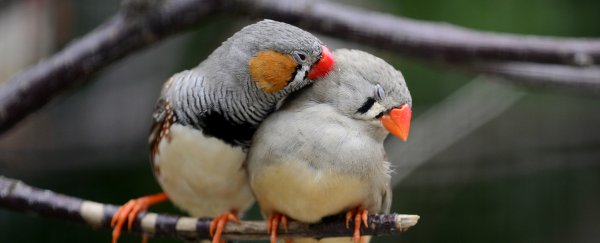Scientists have found that at a blood alcohol level of around 0.08 percent (which would make anyone pretty drunk), birds slur their songs.
It may sound like pointless research, but the scientists are hoping the study will provide insight into human speech and how it's regulated by our brains.
Anyone who's been to a pub will know that humans slur when we get drunk, which suggests that alcohol is affecting something in our brains that controls speech, but up until now this process has been very poorly understood - and as humans are one of the only animals that "talk", it's a hard phenomenon to study.
But research has shown that birds learn to sing in much the same way that human babies learn to talk, and so the team from Oregon Health and Science University in the US, decided to test whether alcohol has a similar effect on zebra finches as humans.
"At first we were thinking that they wouldn't drink on their own because, you know, a lot of animals just won't touch the stuff," one of the research team Christopher Olson told Christopher Dean Hopkins from NPR. "But they seem to tolerate it pretty well and be somewhat willing to consume it."
They found that, after a few drinks the birds' songs started to become quieter and less organised.
But, interestingly, not all parts of the song were affected in the same way, the results, which have been published in PLOS ONE, revealed.
The songs of zebra finches are made up of specific "syllables" with distinct acoustic structures, and some of those syllables were more affected by alcohol than others.
The researchers believe that this suggests that alcohol affects some parts of the brain more than others, and the team is now hoping to study this further.
They also want to look into whether alcohol affects them learning songs in the first place.
Fascinatingly (and also slightly scarily) those results could give us some insight into what alcohol is really doing to our own brains, and will also help us find out more about exactly how speech is controlled in the first place.
Bottoms up.
Sources: The Washington Post, NPR
